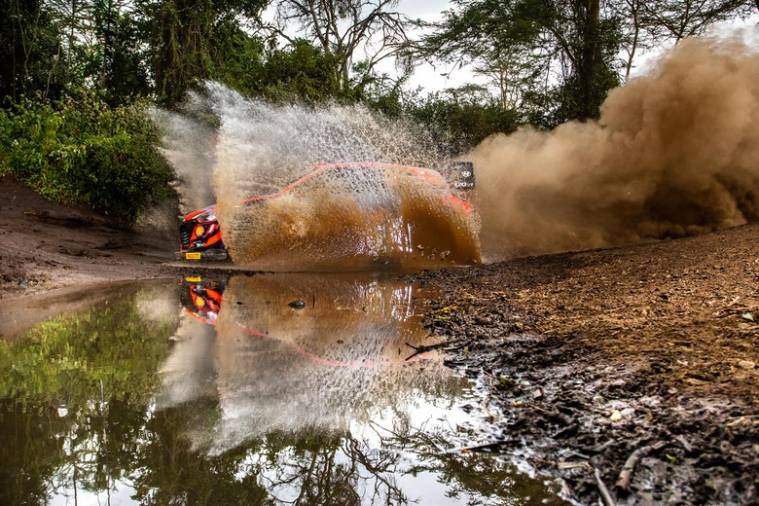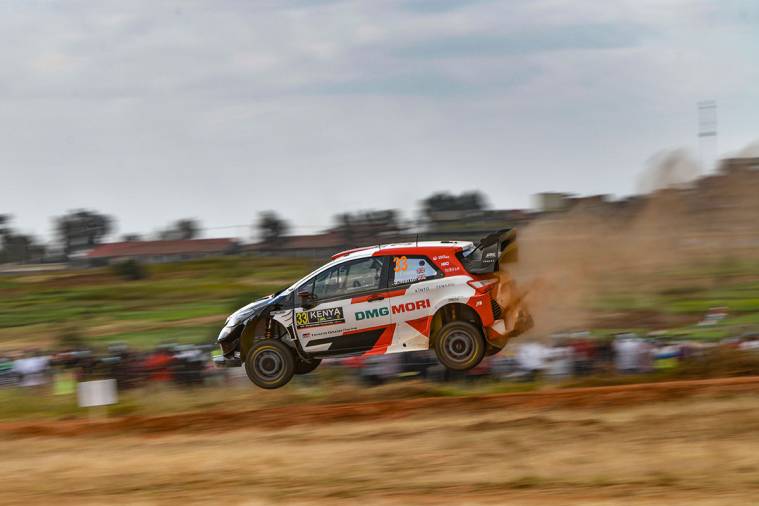Celebrating-Return of the legendary Safari Rally
I am delighted the legendary Safari Rally made a return to the WRC (World Rally Championship Calendar) in June. What's also very heartwarming is that even after a hiatus of 19 years, and despite all the changes in the rules and format of running a WRC event, the fabled Safari still managed to reestablish its reputation of being the toughest and most unique rally in the world.

It was also the first time for the present generation of driver's at the Safari and they sampled a bit of what the original event was like. The Safari was once one of motorsport's most prestigious and celebrated rallies, and Kenya last hosted it as a WRC event in 2002, when the late Colin McRae won it.

Having personally been to the Kenyan Safari Rally in 1988 and 1990, and having driven over almost the entire route on both occasions, I think its return to the WRC is the best thing that could have happened to motorsport. While the requirements of modern day rallying and regulations may not have allowed the Safari to present the kind of legendary challenges it did in the past, it still showed that the Safari is like no other rally.
The rally route of the Safari once spanned over 5,000 kms and though this shrunk with the passage of time, the Safari still remained the longest event in the WRC and in 2002; the length of the competitive special stages was 1,010 kms, transport 1,421 kms with the overall length being 2431 kms. This year in comparison the length of the special stages run over three days was 320 kms, transport 813 kms, and overall distance covered just 1133 kms!
Another big difference is that earlier the Safari was run entirely on open public roads! ​This time all the competition was on ​closed special stages. Closed to other vehicles, but not to the vast variety of wildlife that roams freely on the African plains. So once again after almost two decades, we saw spectacular shots of rally cars with hyena's, zebra's, giraffe's, flamingo's, etc.
The purpose-built service park on the grounds of the Kenya Wildlife Training Institute overlooked Lake Naivasha. Situated in the Great Rift Valley this picturesque lake hosts as many as 400 species of birds and a sizeable population of hippos! In fact some of the mechanics reportedly saw some hippos gently grazing on the green grass at the edge of the lake!
Weather always plays an important role on the Safari, and it did this time too. When it was dry, there was dust - lots of it. In fact at times it looked like the cars were 'drowning in dust'.
And when it rained on Day 3, the dirt turned to slippery mud that had the cars sliding and struggling to stay on course. And once again we saw factory teams using helicopters flying slightly ahead of the cars, to act as spotters and warn drivers of hidden dangers
Interestingly, in the days gone by, cars at the Safari were fitted with day-time- running lights (Yes, the original DRLs) mounted ahead of the A-pillars. The lights were almost at eye level with the animals, allowing them to pick the fast moving object earlier.
But, obviously this did not always happen and stories of cars running into zebras, antelopes, hyenas or even lions, were not uncommon! Some even reported being chased or attacked by elephants and rhinos! But this time, on all the videos I watched, only the Hyundai team was using fast flashing headlights. I wonder why nobody else opted for such lights?
Though the competitive stages were substantially shorter this time, fortunately there were still some fast dirt sections where the drivers touched almost 200 kmph! In the past this fast pace and treacherous terrain caught out even the best and for many champions this was the event to win.
Even this time, the terrain and tempo deceived many drivers and out of the 52 starters, only 26 crossed the finish line! This despite the fact that every time the cars completed 3 special stages, they went into the Service Park for a full service!
Now we also have the "Super Rally Format Rules" which allow cars that breakdown to make repairs and continue the next day. Notwithstanding this, to have an attrition rate of 50 percent, clearly demonstrates how demanding the Safari Rally is.
While watching the live action videos, I actually felt that Thierry Neuville who was comfortably leading the event on Day 1 and 2, was pushing his Hyundai i20 way too hard. He was spectacular, but with the scorching ace and punishment his car was taking, I had my doubts if he could make it to the finish.And that's exactly what happened. On Day 3 he dropped out with broken rear suspension! This proves the Safari requires a different approach and strategy from the team and drivers, adding a completely new dimension to the WRC.
One of the big highlights for me was that the Polish ace Sobielsaw Zasada took part and became the oldest WRC competitor ever at 91. What's even more amazing is that despite his advanced age he drove brilliantly, leaving the other competitors (most about 60 years younger) totally impressed. Unfortunately, he dropped out just 2 kms from the finish of the final stage. Must be really heartbreaking to be so near, and yet so far.
Image Source Toyota Gazoo Racing and Hyundai Motorsport